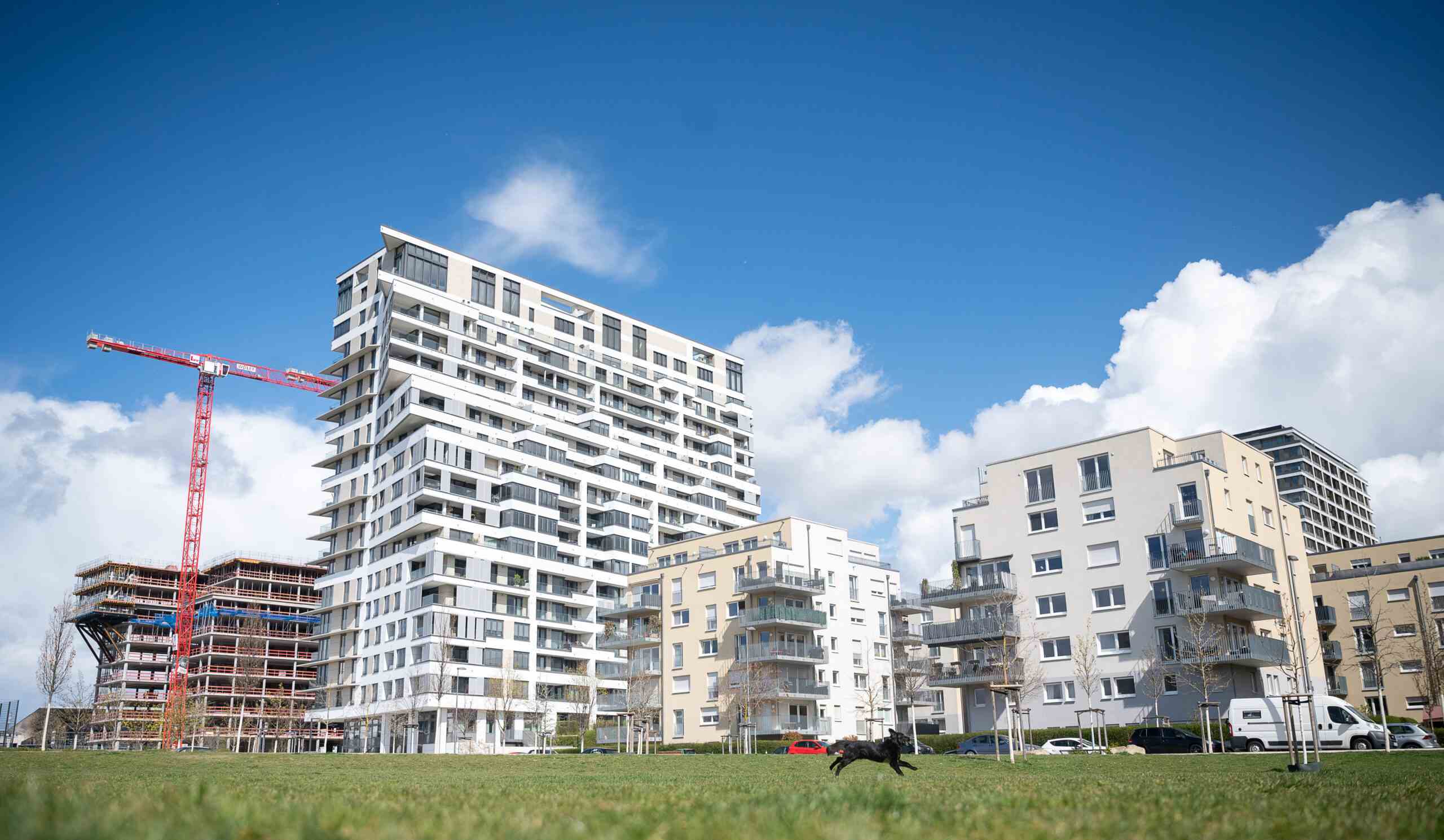Status: 05/18/2022 3:57 p.m
In Germany, 400,000 apartments are to be built every year in order to alleviate the hardship on the real estate market. However, the construction industry is warning that the goal is becoming ever more distant due to the problems caused by the Ukraine war.
The construction industry fears shrinking business this year because of the problems resulting from the Ukraine war. The ongoing shortage of materials, rising construction prices, increasing cancellations of construction projects and the threat of short-time work are burdening the industry. One only expects “a development between zero and minus two percent” for real sales, said Peter Hübner, President of the Main Association of the German Construction Industry (HDB), today in Berlin.
“We want to build, we should build, but we often can’t build,” said Hübner. The reason for this is supply bottlenecks for building materials and higher raw material prices. This ensures that more and more clients are postponing projects or canceling them immediately. Prices for welded wire mesh have risen by 70 percent and for bitumen by 45 percent within a year.
According to Hübner, the sales forecast is subject to the proviso “that there will be no further tightening of energy prices and the purchase of building materials over the course of the year”. Because the expensive energy hit the companies enormously. “For us, diesel is the mega topic.” The industry cannot compensate for a 30 percent increase in energy prices.
Russia and Ukraine are missing as suppliers
At the turn of the year, the prospects for construction were still positive, according to Hübner. At that time, the industry was still targeting nominal growth of 5.5 percent for this year. After deducting rising construction prices, this would have been an increase of 1.5 percent in real terms. However, the Russian invasion of Ukraine changed the situation completely. A third of the companies surveyed by the association purchase material from both countries. Nine out of ten companies complained about the direct or indirect effects of the war on their company.
“The war brutally and relentlessly exposes the tight supply chains and dependencies,” said Hübner. This can be seen at one of the largest steelworks in Europe, the Azovstal complex in Mariupol, Ukraine. Where soldiers had entrenched themselves under fire from Russian troops, production should probably not take place for the time being. “That’s why there is a real shortage of steel,” warned the association’s president. He advocated making Germany less dependent on other countries as a production location. Therefore, one must be able to use more domestic raw materials. This is currently hardly possible, primarily for environmental reasons.
Tens of thousands fewer apartments than planned
For 2023, the industry association expects a similar decline in sales as in the current year. “We hope that we can turn the whole thing positive again in 2024,” said Hübner.
From the point of view of the association, the federal government’s goal of 400,000 new apartments per year will not be achieved this year or next. “We are assuming that we will create around 320,000 apartments this year,” said HDB Managing Director Tim-Oliver Müller.

